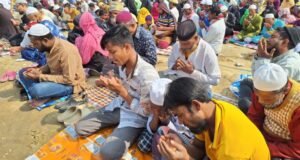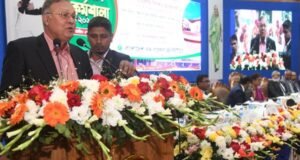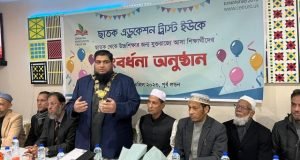 President Barack Obama and Cuba’s Raul Castro are due to hold their first formal meeting in another historic step towards ending decades of hostility.
President Barack Obama and Cuba’s Raul Castro are due to hold their first formal meeting in another historic step towards ending decades of hostility.
The talks, on the sidelines of the Summit of the Americas, will be the first top-level negotiations between Cuba and the US in more than 50 years.
As the 35-nation summit in Panama entered its second day, Mr Obama called the shift “a turning point”.
On Friday, Mr Obama and Mr Castro shook hands at the opening ceremony.
It was their first encounter since a thaw in relations began in December.
Mr Obama has already signalled he is prepared to take Cuba off Washington’s list of state sponsors of terrorism.
But Saturday’s historic talks could be overshadowed by tensions between Venezuela and the US.
Ahead of the summit, Mr Obama told Latin American leaders that the days when his country could freely interfere in regional affairs are past.
The US broke off diplomatic relations with Cuba in 1959 after Fidel Castro and his brother Raul led a revolution toppling US-backed President Fulgencio Batista. The Castros established a revolutionary socialist state with close ties to the Soviet Union.
At past Summits of the Americas, which bring together the leaders of North, Central and South America, the US has come in for criticism for its embargo against Cuba and its objection to Cuban participation.
This seventh summit is the first which Cuba is attending. Much of the attention will be focused on the body language between the former foes.
A marching band performed at the sunations are represented
The US president is expected to raise the issue of political reform in Cuba. Human rights are also of concern to Washington.
Meanwhile Havana is seeking an end to the US trade embargo and removal from Washington’s list of state sponsors of terrorism.
Mr Obama has indicated he is ready to delist Cuba but it is not clear whether this will happen at the meeting or later.
Cuba’s presence on the list has been one of the main hurdles on the way to closer ties between the two countries as it hampers Cuba’s ability to conduct financial transactions.
The two leaders may still be able to find a path through their shared difficulties and discuss a date for reopening embassies in their respective capitals in the near future, says the BBC’s Will Grant in Panama City.
That would be another huge step on this complex journey towards a thaw, our correspondent says.
On Friday, Mr Obama and Mr Castro joined representatives from 35 nations for the summit’s inauguration ceremony.aid that Venezuela has come to the summit in a “constructive spirit”
The smooth progress made between Cuba and the US stands in contrast to the bumpy ride that US-Venezuela relations have experienced over the past months.
The two countries have not exchanged ambassadors for more than six years. Tensions rose last month when the US imposed sanctions on a group of Venezuelan officials it accuses of human rights abuses.
As part of the sanctions, Mr Obama issued an executive order declaring Venezuela a threat to US national security.
President Maduro has collected more than 10 million signatures demanding its repeal and plans to present them to Mr Obama.
Mr Maduro sent out mixed messages on Friday, visiting a monument to victims of the 1989 US invasion of Panama but also saying that Venezuela was at the summit “in a constructive spirit, to make history through respect”.
 Weekly Bangla Mirror | Bangla Mirror, Bangladeshi news in UK, bangla mirror news
Weekly Bangla Mirror | Bangla Mirror, Bangladeshi news in UK, bangla mirror news





